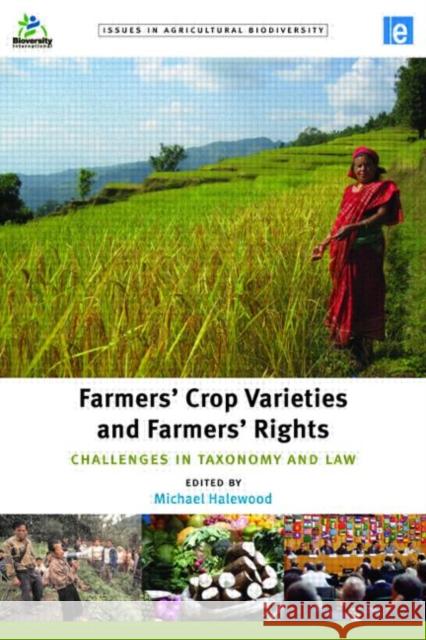Farmers' Crop Varieties and Farmers' Rights : Challenges in Taxonomy and Law » książka
Farmers' Crop Varieties and Farmers' Rights : Challenges in Taxonomy and Law
ISBN-13: 9781844078905 / Angielski / Twarda / 2015 / 288 str.
Farmers' Crop Varieties and Farmers' Rights : Challenges in Taxonomy and Law
ISBN-13: 9781844078905 / Angielski / Twarda / 2015 / 288 str.
(netto: 696,83 VAT: 5%)
Najniższa cena z 30 dni: 654,86
ok. 16-18 dni roboczych.
Darmowa dostawa!
Crop plant varieties developed by local farmers, commonly referred to as farmers' varieties, are problematic because there are no fixed taxonomic or legal definitions of them. As a result, policies to increase the share of benefits farmers receive from the use of such varieties struggle to have an effect. Aiming to clarifying these issues, this volume explores the nature of farmers varieties in the context of their biological, social and legal significance.
The book addresses the complexities of defining what farmers varieties are and how they differ from one another and from generic varieties. It then charts the evolution of the concept of farmers rights, from the dawn of genetic resources as a subject worthy of international attention, to the first legal recognition of the concept, through to current efforts to develop national level policies and laws. Further, the book examines outstanding policy-making challenges linked to the absence of fixed taxonomic or legal definitions of farmers varieties.
Case studies are included from Africa, Asia, Europe and South America in which farmers, researchers and policy advocates have been confronted with the issues raised in this book. Various solutions are considered based on revised or new definitions of farmers varieties that reflect the biological and cultural realities in which they are produced, and the relative costs and benefits of attempting to implement each of the policies discussed. "











